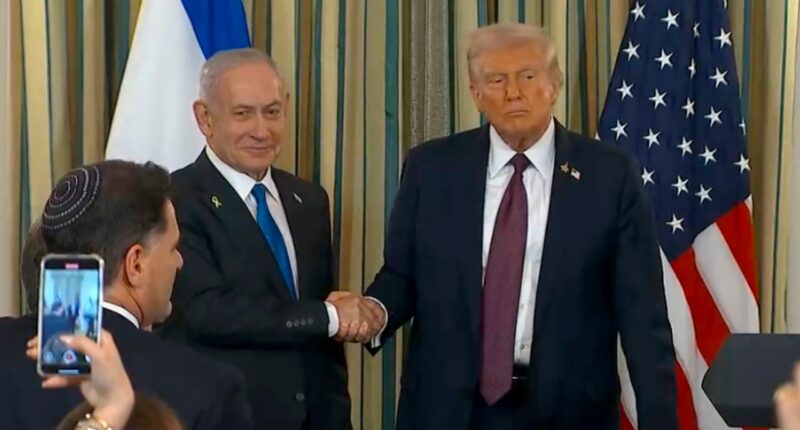Share this @internewscast.com
As President Donald Trump works towards finalizing his comprehensive 20-point strategy to end the conflict in Gaza, Israel stands at a crossroads that could significantly influence the post-conflict landscape. The plan proposes a gradual Israeli retreat from Gaza, alongside the return of all captives and a substantial prisoner exchange. In turn, Hamas is expected to agree to disarm and permit a neutral interim government to oversee Gaza’s rebuilding efforts.
Nonetheless, a contentious part of the proposal is the release of numerous convicted Palestinian militants, a point that has sparked significant opposition from the victims’ families.
Dr. Michael Milshtein, a leading authority on Hamas and head of the Moshe Dayan Forum at Tel Aviv University, shared with Fox News Digital that the list of approximately 250 detainees includes individuals he considers “a genuine strategic threat.”
Furthermore, the negotiations face another potential hurdle due to Hamas’s insistence on freeing roughly 90 members of its elite “Nukhba” unit, who were involved in the brutal attack on Israeli settlements on October 7.
After visiting the Ramla Prison wing where some of these operatives are incarcerated, Milshtein reported that they remain unrepentant. “I spoke with them,” he related to Fox News Digital. “They are deeply radicalized and utterly committed. They express no regret, except for not having inflicted more casualties.”
Hamas militants were responsible for the deaths of civilians, including women, children, and the elderly, during their assault on Israel on October 7, 2023. (Image courtesy of Israel Defense Forces via AP)
He described the Nukhba detainees as the most ideologically extreme and operationally capable among Hamas’ ranks. “They are like a special-forces division with a radical worldview,” he said. “Releasing them would be like setting loose the people who planned and executed the worst day in Israel’s history.”
Despite the risks, Milshtein acknowledged that Israel may have no alternative. “It’s a terrible dilemma,” he said. “But strategically, this may be one of those bitter compromises Israel will have to make to bring its citizens home.”

















